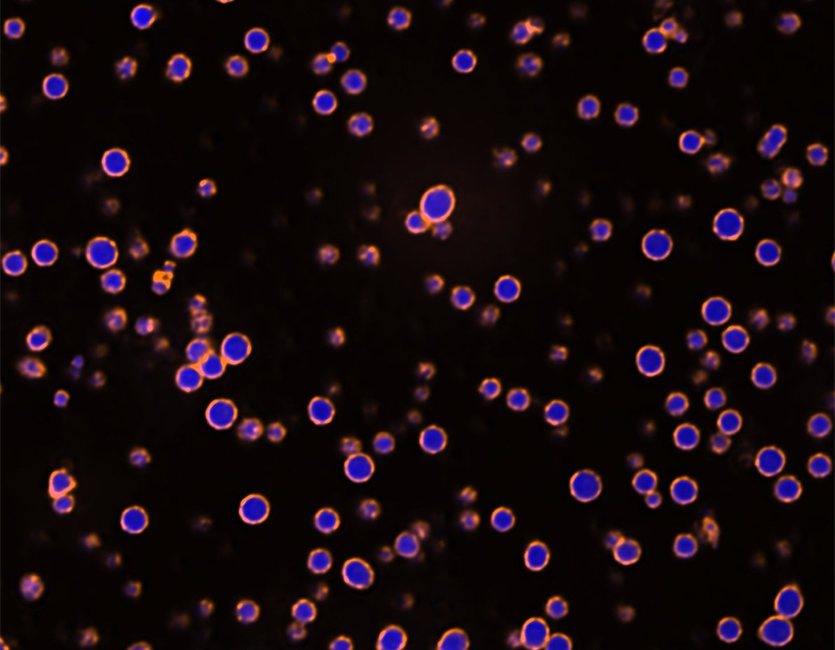Byline: Win Reynolds
-

Cell Feature Implicated in Cancer Forms Differently than Previously Thought
A team lead by Northwestern scientists has found that paraspeckles, found in the nucleus of many cells, form differently than previously thought, which may aid in the design of future cancer drugs.
-

The Antibiotic That Takes the Bite Out of Lyme
A new Northwestern study shows piperacillin, an antibiotic, effectively cured mice of Lyme disease at a dose 100 times smaller than the effective dose of doxycycline, the current gold-standard treatment.
-

Post-Treatment Lyme Disease Syndrome May Be Driven by Remnants of Infection
A new Northwestern study may explain why the body may continue to respond to an invisible threat long after bacterial death in Lyme disease.
-

New Function Discovered for Protein Important in Leukemia
A new study has identified a previously unobserved function of a protein found in the cell nuclei of all flora and fauna, playing a role promoting gene transcription.
-

Scientists Develop Approach to Accurately Predict Pneumonia Outcomes
By applying a sophisticated machine-learning approach to electronic health records of patients with pneumonia, investigators at Northwestern University have uncovered five distinct clinical states in pneumonia.
-

U.S. South Asians Need Targeted Programs to Improve Heart Health
Northwestern Medicine scientists have conducted the largest lifestyle-intervention trial for U.S. South Asians, helping build a larger body of research to better represent the diverse and vastly underrepresented group.
-

First-of-its-Kind Program Makes Organ Transplants More Accessible to Disadvantaged Black Americans
A recent publication has outlined the novel and practical approach to improving transplant equity pioneered by Northwestern’s African American Transplant Access Program.
-

Mustanski Appointed as Advisor to NIH Director
Brian Mustanski, PhD, director of the Institute for Sexual and Gender Minority Health and Wellbeing, has been appointed to the Advisory Committee to the Director of National Institutes of Health.
-

Immigrants Living in the U.S. Have Fewer Preterm Births
Individuals born in the U.S. had a higher rate of giving birth prematurely compared to U.S. immigrants, a new Northwestern Medicine study has found.
-

Syphilis Transmission in U.S. Higher Among Transgender Women and Black Gay and Bisexual Men, Study Finds
Transgender women and Black gay and bisexual men in Chicago are nearly twice as likely to contract syphilis at some point in their lives as white gay men, according to a new study.






